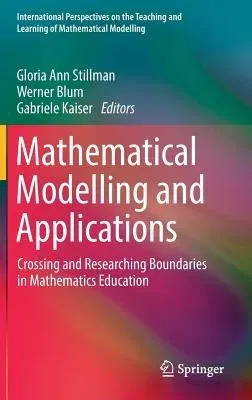This volume documents on-going research and theorising in the sub-field
of mathematics education devoted to the teaching and learning of
mathematical modelling and applications. Mathematical modelling provides
a way of conceiving and resolving problems in the life world of people
whether these range from the everyday individual numeracy level to
sophisticated new problems for society at large. Mathematical modelling
and real world applications are considered as having potential for
multi-disciplinary work that involves knowledge from a variety of
communities of practice such as those in different workplaces (e.g.,
those of educators, designers, construction engineers, museum curators)
and in different fields of academic endeavour (e.g., history,
archaeology, mathematics, economics). From an educational perspective,
researching the development of competency in real world modelling
involves research situated in crossing the boundaries between being a
student engaged in modelling or mathematical application to real word
tasks in the classroom, being a teacher of mathematical modelling (in or
outside the classroom or bridging both), and being a modeller of the
world outside the classroom. This is the focus of many of the authors of
the chapters in this book. All authors of this volume are members of the
International Community of Teachers of Mathematical Modelling (ICTMA),
the peak research body into researching the teaching and learning of
mathematical modelling at all levels of education from the early years
to tertiary education as well as in the workplace.

